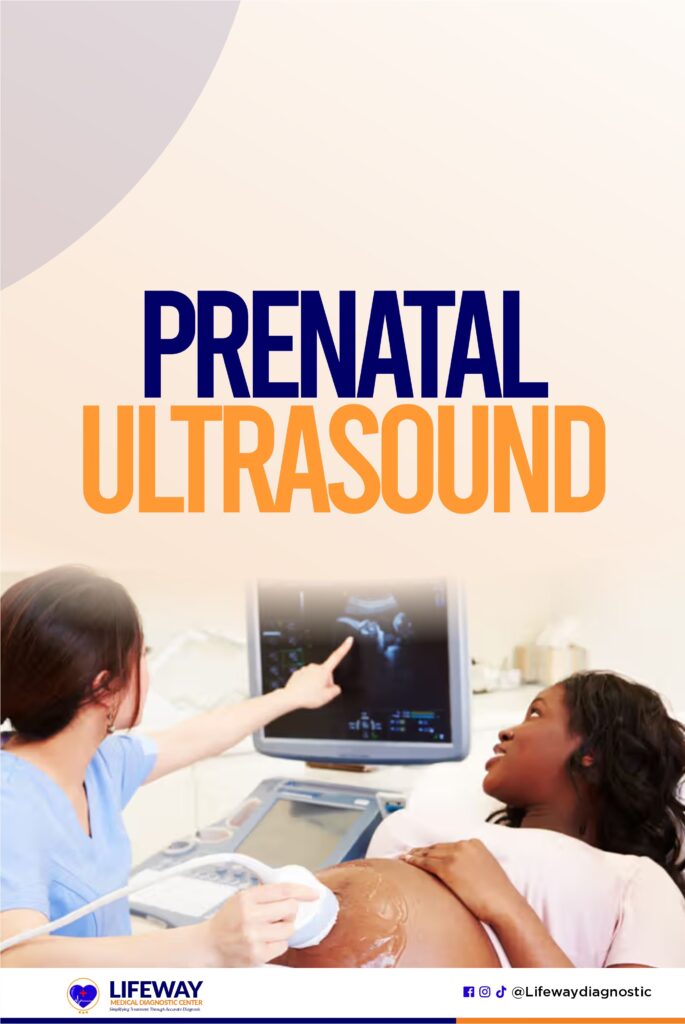Prenatal ultrasound is an important part of taking care of a baby before it is born. It helps parents and doctors learn important information about how the baby is growing and how healthy it is.

This non-invasive imaging technique utilizes sound waves to create real-time images of the womb, allowing for the assessment of fetal growth, anatomy, and overall health.
In this blog post, we will explore the significance of prenatal ultrasound, its procedure, benefits, and safety considerations.
What is Prenatal Ultrasound?
Prenatal ultrasound, also known as pregnancy ultrasound, is a medical imaging technique that uses sound waves to create visual images of the developing fetus in the womb.
It is a safe and painless procedure commonly used during pregnancy to monitor the health and development of the baby.
It allows healthcare providers to assess various aspects of the pregnancy, such as confirming pregnancy viability, estimating gestational age, evaluating fetal anatomy, and detecting potential abnormalities or complications.
Prenatal ultrasounds are typically performed at different points during pregnancy. The timing and frequency may vary based on factors such as the mother’s medical history, the presence of risk factors, and the healthcare provider’s recommendation.
Common ultrasound examinations include the dating scan (around 8-14 weeks), the anatomy scan (around 18-22 weeks), and growth scans in the later stages of pregnancy.
Types of Prenatal Ultrasound Examinations
There are different types of prenatal ultrasounds depending on the stage of pregnancy and the specific information needed:
1. Transabdominal Ultrasound
The most common type of prenatal ultrasound involves moving the transducer over the abdomen to obtain images.
2. Transvaginal Ultrasound
During the early stages of pregnancy, the healthcare provider inserts a transducer into the vagina to obtain closer and clearer images of the fetus.
3. Doppler Ultrasound
This type of ultrasound uses sound waves to evaluate blood flow in the umbilical cord and fetal vessels.
Procedure and Process:
- The mother may be instructed to drink water before the ultrasound to enhance image quality during the transabdominal ultrasound.
- The ultrasound technician applies a gel to the abdomen or the transducer, which helps facilitate the transmission of sound waves.
- The healthcare provider systematically moves the transducer over the abdomen, capturing images of the fetus and other structures.
- The technician may take measurements, assess the baby’s organs, listen to the heartbeat, and capture images for documentation and further analysis.
- The duration of the procedure varies but typically ranges from 20 to 40 minutes.
Benefits of Prenatal Ultrasound:
Prenatal ultrasound is a valuable tool in prenatal care that offers a window into the world of the developing fetus. Some benefits of having an ultrasound during pregnancy include:
- Safe and Established: Prenatal ultrasound has been used for decades without known harmful effects on the fetus or mother. Hence, it is considered safe.
- Early Detection: It can identify structural abnormalities, such as heart defects or neural tube defects, enabling early intervention and management.
- Emotional Bonding: Seeing movements and hearing the heartbeat fosters an emotional connection between parents and the unborn child.
- Reassurance: Ultrasound confirms a healthy pregnancy, providing peace of mind and reducing anxiety.
- It enables healthcare providers to monitor the growth and position of the fetus, as well as evaluate the placenta and amniotic fluid levels.
- Ultrasound in pregnancy also aids in confirming the gestational age, identifying multiple pregnancies, and determining the baby’s sex if desired.
It’s important to follow guidelines, have ultrasounds performed by trained professionals, and be aware of the limitations of ultrasound in detecting all birth defects or developmental issues.
Overall, prenatal ultrasound plays an important role in pregnancy, providing valuable information about the developing fetus and assisting healthcare providers in ensuring a healthy pregnancy and delivery.
Conclusion:
Prenatal ultrasound can be an exciting and emotional experience for expectant parents. It allows them to see their baby’s movements, hear the heartbeat, and potentially determine the sex of the baby.
It can also provide valuable information for making decisions regarding prenatal care and potential interventions.
By understanding the significance, procedure, benefits, and safety considerations associated with prenatal ultrasound, parents can make informed decisions and embrace the journey of pregnancy with confidence and peace of mind.
Contact Lifeway Medical Diagnostic Center to schedule your prenatal ultrasound appointment and experience our exceptional care and expertise.
